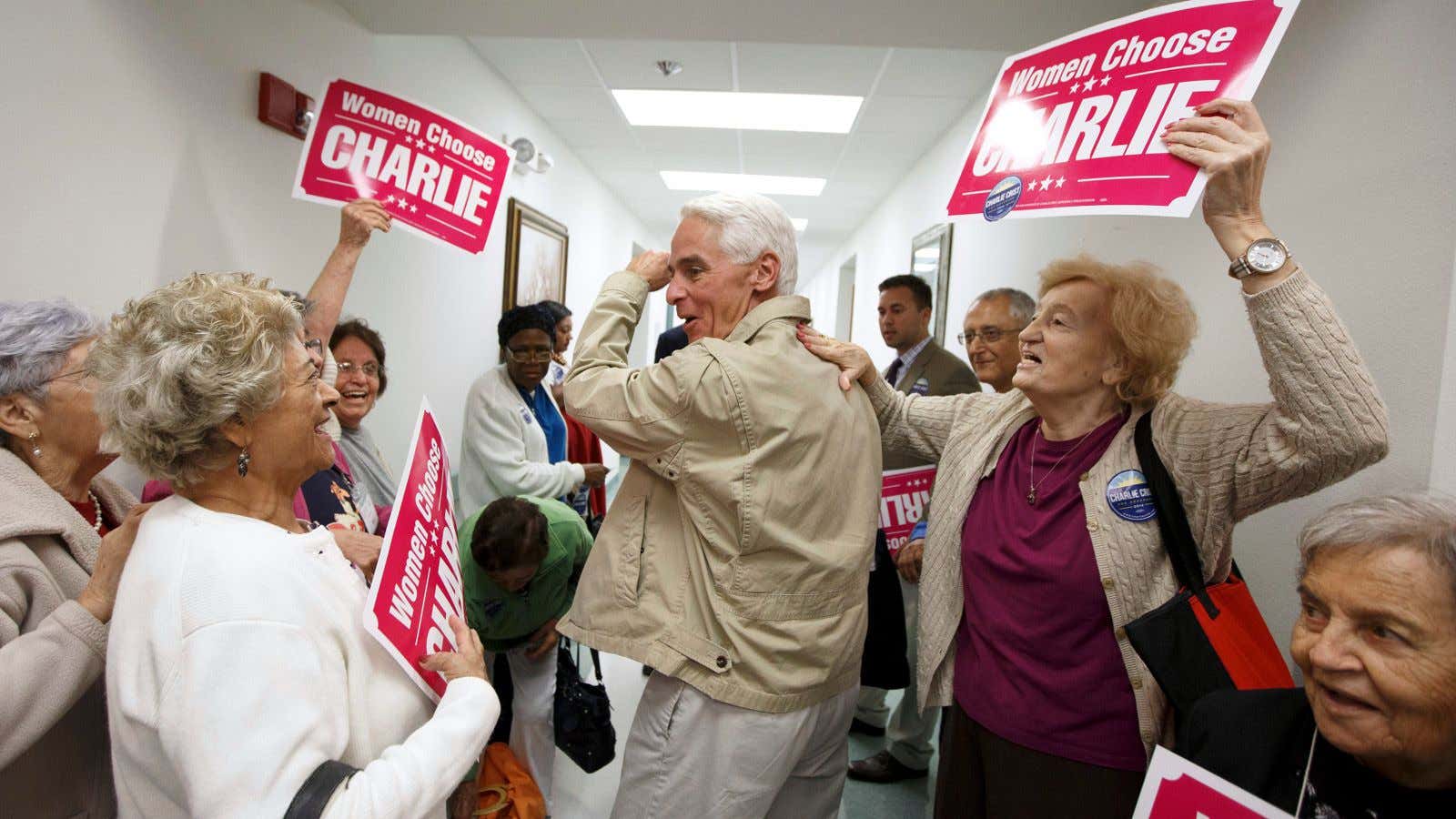TO: Quartz election desk
SUBJECT: Election night coverage
We’ve almost got the hologram projector set up for the live-cast, and our 3-D vote map projection is working fine—you should see the zoom to critical Waukesha County. All we’re missing is a plan to cover the national policy narrative of the elections—our researchers can’t find one. Not a thing.
Really?
Yes, we’re aware that there’s a 75% chance, according to the mushroom forest of forecasting models, that the Senate will switch into Republican hands, the only clear national prize in this election. It’s a weirdly fated situation: The most favorable for Republicans since World War II, and in a cycle (the final by-election of a president’s term) that is already stacked against the incumbents. Yet while the senators will be elected for six years, the near-term effect will be little substantive change. For the first two of those years, Barack Obama will still be the president, and unless he and House leader John Boehner start to see eye to eye, we can expect little to come out of Congress except political messaging.
What about political appointments?
Several of you have been following the holdup in executive branch and judicial appointments—indeed, thanks to the filibuster, Republicans have a de facto hold on most appointments. They’ll have slightly more leverage now, but not enough to make a material difference. There already are 248 nominees waiting to be confirmed, everyone from the president’s pick for surgeon general to the chairman of the National Transportation Safety Board.
Doesn’t Congress do anything?
Of course, the business of taxing and spending will have to be taken care of—but a compromise on budget levels reached by the two parties last year should tamp down any fracas around major cuts, at least for the next year or so. Republicans may try to attach policy measures to spending bills—going after Obamacare, immigration measures, or financial regulators, for instance—or manufacture a fiscal showdown over the debt ceiling again. But the last time that happened, it hurt Republicans politically, so analysts expect the party’s leadership to avoid a repeat.
What will we write about for the next two years?
Of course, some Republicans are making noise about finding a middle ground on big policy measures—trade deals are a natural place for Obama, more of a free-trader than the average Democrat, to work together with his opposition. That immigration reform passed the Senate with Republican votes suggests something could be accomplished there, and Republicans have some incentive to please Hispanic voters ahead of the 2016 presidential election. Then there’s tax reform—but any bipartisan deal there would burnish Obama as well as the Republicans, and so far the opposition party has been reluctant to do that even when compromise can be found (see the endless back and forth surrounding a grand fiscal bargain). Compromise would be a West Wing fantasy—and how often do those come true?
What if the polls are wrong, though?
That’s always possible (if not entirely plausible). But even if the pollsters are off by a lot this year, the Democrats won’t take control of the House or gain a filibuster-proof majority in the Senate—which means more of the same gridlock we enjoy so much today.




